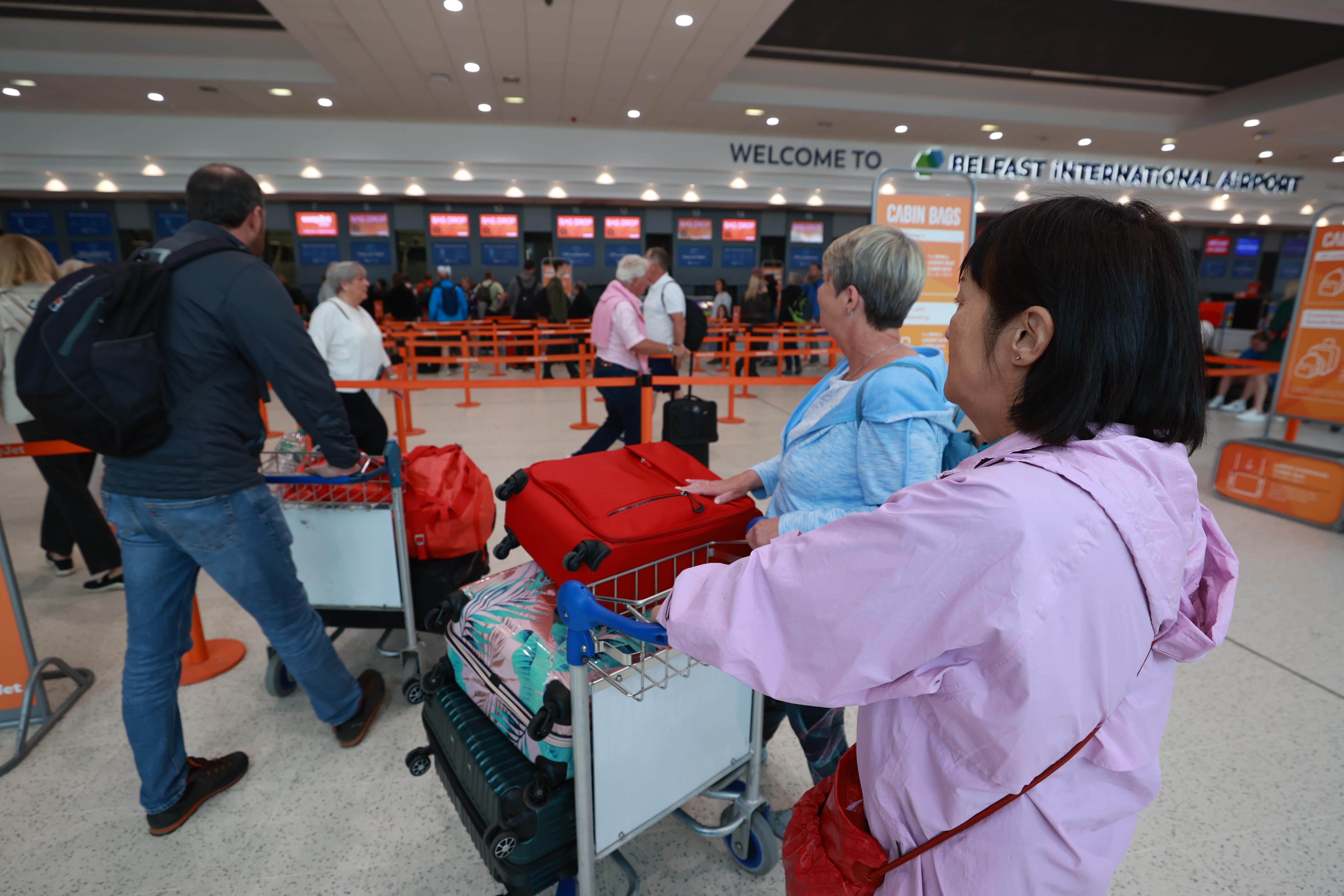Air traffic control meltdown inquiry highlights ‘lack of pre-planning’
Flights were grounded across UK airports on August 28 after ATC provider National Air Traffic Services (Nats) suffered a technical glitch.

An independent review into the August bank holiday air traffic control (ATC) meltdown which affected nearly 750,000 passengers has highlighted a “significant lack of pre-planning”.
Flights were grounded across UK airports on August 28 after ATC provider National Air Traffic Services (Nats) suffered a technical glitch while processing a flight plan.
An interim report from an inquiry into what happened found there does not appear to have been “any multi-agency rehearsal of the management of an incident of this nature and scale”.
It is clear there is a significant lack of pre-planning and co-ordination for major events
These rehearsals are “best practice” and “regularly conducted in other sectors”, the inquiry panel stated.
The interim report, published by regulator the Civil Aviation Authority (CAA), noted: “The panel expects to recommend that the CAA should review and lead such multiagency planning.
“This is especially important, as some relationships between aviation sector stakeholders appear to be adversarial.
“This is not to the benefit of passengers, especially in a crisis situation such as this incident.”
It went on: “It is clear there is a significant lack of pre-planning and co-ordination for major events and incidents that targets the alleviation and remediation of major incidents.”
The inquiry found that Nats’ rostering of engineers is based “primarily” on the amount of work planned, so on public holidays – when maintenance is not routinely scheduled – it is “common practice for staff to be available on standby at remote locations – typically at home”.
On the day of the ATC failure, it took 90 minutes for the on-call engineer to “arrive on-site in order to perform the necessary full system restart which was not permitted remotely”, the report said.
Tim Alderslade, chief executive of Airlines UK, the industry body representing UK-registered carriers, said: “This report contains damning evidence that Nats’ basic resilience planning and procedures were wholly inadequate and fell well below the standard that should be expected for national infrastructure of this importance.
“We welcome the committee’s plans for further investigation to provide recommendations so that this kind of catastrophic failure is not allowed to happen again.”
Many affected passengers were required to pay up front for alternative flights, food and accommodation – and submitted claims to airlines for reimbursement – despite airlines being legally required to provide these.
The inquiry panel found evidence of “misinformation about passenger rights”, with leaflets handed out by some airlines claiming passengers “had to make their own plans to get home”.
It said the “standard approach” of informing passengers of what they are entitled to “is not sufficient”, and recommended the use of loudspeaker announcements and staff circulating in and around airports with “standardised leaflets”.
The panel described the financial cost to passengers as “very considerable”, but noted that the “stress and anxiety” was “at least as serious”.
Some travellers were stranded overseas for several days because of the number of flight cancellations.
The combined cost to airlines in providing refunds, re-bookings, hotel rooms and refreshments to affected passengers was previously estimated at around £100 million by industry body the International Air Transport Association (Iata).
Several airlines including Ryanair have called for Nats to be liable for the cost of disruption it causes.
The review panel said it has “concerns” that Nats’ performance is measured in delay minutes but does not take account for the impact of cancellations and knock-on delays.
The report stated: “It appears inappropriate that (Nats) is likely to achieve almost all of its performance targets in 2023, and to suffer very little financial consequence, after having caused such huge and serious disruption to passengers, as well as considerable costs for airlines, airports and tour operators.
“This suggests that the performance incentive framework may not be measuring the right things, or indeed that the things that matter most to passengers and other parts of the aviation system are not properly measured at all.
“This is a topic that the panel will consider in more detail in its final report.”
The inquiry was set up by the CAA and is being led by Jeff Halliwell, who has served as a chief executive and non-executive director in roles across the private and public sector.
Mr Halliwell said: “This interim report sets out the panel’s work so far in understanding the root causes of the incident; the effectiveness of communications between Nats, other parts of the aviation sector and the consumers; and the underpinning regulatory regime.
“In order to produce effective recommendations, the panel has further lines of inquiry it is exploring in order to build a better understanding of how the aviation system can improve.”
CAA chief executive Rob Bishton said: “This interim report helps with the understanding of what went wrong, what worked well in response to this, and importantly what action can be taken to improve the UK’s aviation system for the future.”
A spokesman for Nats said it “co-operated fully” with the review and will “continue to respond constructively to any further requests to support the panel’s ongoing work”.
It added: “We have not waited for the panel’s report to make improvements for handling future events based on learning from the experience of last year.
“These include a review of our engagement with our airline customers, our wider crisis response and our engineering support processes.”
Bookmark popover
Removed from bookmarks